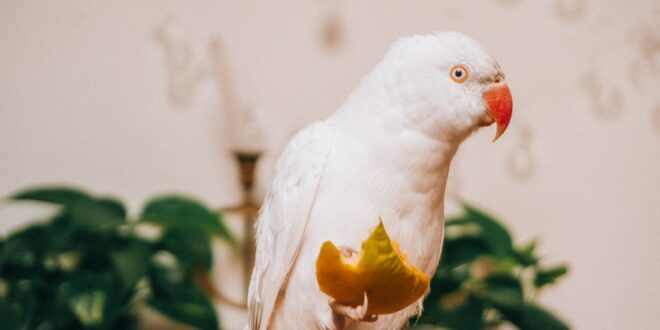There are so many benefits to keeping a pet – and if you live alone, these become even more important. Pets provide company, reduce anxiety, encourage us to use our brains, and boost our mood. While pets also come with a great degree of responsibility, they are often one of the best things to happen in our lives, especially as we enter our retirement years. Many people opt for a more commonly acquired pet such as a cat or dog, but parrots are also highly affectionate animals, and the interaction they command makes them great company.
Is a parrot the pet for you?
Parrots are highly social birds so if you are thinking of keeping one, be certain you will have the time to spend with it. And remember: bored birds quickly become destructive. Parrots can live long lives (many breeds live for many decades) so you need to have a succession plan in place before you acquire one. This may even mean making provision for your parrot in your will.
If you already have a pet, you will need to make sure your parrot has been raised in an environment where it is used to other animals. Similarly, if you have young children in your home, it will be best if your parrot has encountered children before.
Lastly, think of safety. Any pet, no matter how well loved and trained, can inflict harm. And the larger the parrot you have, the larger its beak will be– and the greater its potential for giving a serious nip! Larger birds can also be noisy, so if you live in close proximity to others, bear this in mind!
One bird or more?
Whether you opt for one parrot or more will depend on how you want to interact with your pet(s) and how much of the day you spend at home. If you want a bird to engage with you as much as possible, and you have the time to teach and entertain it, one bird is best, provided you are in your home for much of the time. However, it is equally valid to keep more than one bird if you are happy to enjoy them as a collection, and to watch their behaviour with each other, or if you spend long periods of the day away from home. However you decide, place your intentions, and the good of the bird or birds, at the centre of your decision making. And always be realistic.
Expense
It’s common to think of parrots as large, impressive birds, but they come in many different sizes, and some (such as the quaker parrot) are cute and small. Any well bred bird, however, will not be inexpensive (think hundreds of dollars – or more!). And the larger your bird, the more space you will need to provide for it, and the more this will cost. A safe and roomy home-cage is essential as a starter, but this will also need to be accompanied by a smaller cage for transporting your bird to (say) a vet or a friend who is providing temporary care. Many parrot owners also like to install an enclosure which opens to the outside world so their parrot can come and go as it pleases. Then, as with other animals, your parrot will also require toys and quality feed.
Where to gain experience
If you are thinking of a parrot as a companion animal, get to know these intelligent, cheeky birds first. Start by visiting The New Zealand Federation of Bird Clubs site, and navigating your way to clubs that can put you in touch with parrot owners and breeders. The more you learn, the more you will be confident in whatever decision you come to.









Join the Discussion
Type out your comment here:
You must be logged in to post a comment.